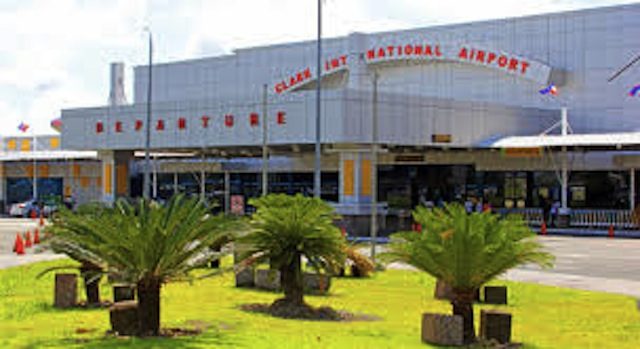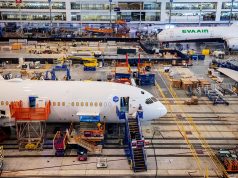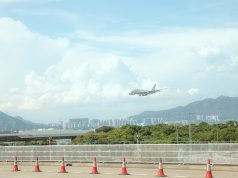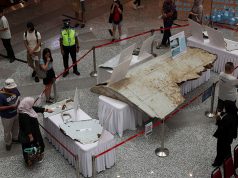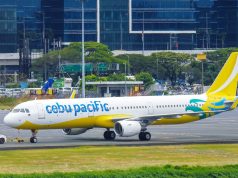CLARK CITY, Philippines – Clark International Airport (CRK) has surpassed its passenger target accommodated this year, CRK Corp. President Alex Cauguiran reported.
From January to 30 December 2017, the airport registered more than 1.5 million passengers, surpassing its highest record of over 1.3 million passengers served last 2012.
Cauguiran attributed the significant rise to President Rodrigo Roa Durerte’s declared policy to distribute development outside the peripheries of Metro Manila, which was then pushed into reality by Department of Transportation (DOTr) Secretary Arthur P. Tugade.
“This achievement proves the high level of our public’s trust and confidence in President Duterte’s vision for a multiple gateway under the administration’s Build Build Build program,” Cauguiran said. “Secretart Tugade, although very silent, worked very hard to turn the President’s vision into reality. That is why from only seven domestic flights a week in the previous years, we now have 200 international and domestic flights from Clark. All these happened in the first year of the Duterte administration,” he added.
On assuming office, Tugade encouraged airlines to launch more flights from Clark in order to decongest NAIA, and also transferred some general aviation activities there. He likewise instructed CIAC to provide incentives to airline operators willing to fly from Clark.
Apart from improvements in policy decisions, Cauguiran cited strict implementation of security measures by airport personnel, as well as improved customer service, passenger comfort and convenience, among those that attracted travellers to flock to Clark. The former baselands – home to America’s largest overseas air base – is envisioned to be a premier gateway to both local and international destinations.
Recently, top government officials, such as former President Gloria Macapagal Arroyo, House Speaker Pantaleon Alvarez, Senator JV Ejercito, Senator Dick Gordon, Executive Secretary Savador Medialdea, DOTr Secretary Arthur Tugade, and Bases Conversion and Development Authority (BCDA) President and CEO Vince Dizon graced the groundbreaking ceremony of the new CRK passenger terminal building.
During the ceremony, Tugade said the new terminal will complement other infrastructure projects in the area: Manila-Clark Railway, Subic-Clark Cargo Railway, and the New Clark City.
“Ikakabit po natin ang proyektong ito sa Manila-Clark Railway. Not later than 06 January 2018, we will mobilize the construction of the first segment from Tutuban to Malolos, and hopefully we will complete the entire line to Clark before the end of President Duterte’s term,” Tugade said.
For his part, BCDA President and CEO Dizon said the CRK expansion project will decongest the Ninoy Aquino International Airport, as the new passenger terminal would accommodate an additional 8 million passengers per year.
House Speaker and former transportation secretary Pantaleon Alvarez also expressed excitement over the opportunities the new terminal will be bringing to the Philippines.
Senator Gordon, who played a vital role in establishing freeport zones in Luzon, likewise expressed his joy in finally seeing the airport being fully-utilized, calling it “a new beginning for our country.”
“Infrastructure is not a project of a government. It is a project of the people. It is a project of vision. This is about opportunity, the great equalizer. This is about making the future our friend,” he said.
Finance Secretary Carlos Dominguez noted,
“Before, projects take an average of 30 months under PPP. I assure you that this will not happen in the infrastructure projects of the Duterte administration.”
He said the Clark expansion project is considered the fastest to be implemented by the national government. It broke ground just six months after getting NEDA Board approval.
Former President and now Pampanga Representative Arroyo, whose term saw the building of the CIA, was the special guest at the groundbreaking.
The construction of the new terminal is the first hybrid project under the BuildBuildBuild Infrastructure Program of the Duterte administration. Under the hybrid model, the government will build the infrastructure using its own funds to ensure fast delivery of the project.

